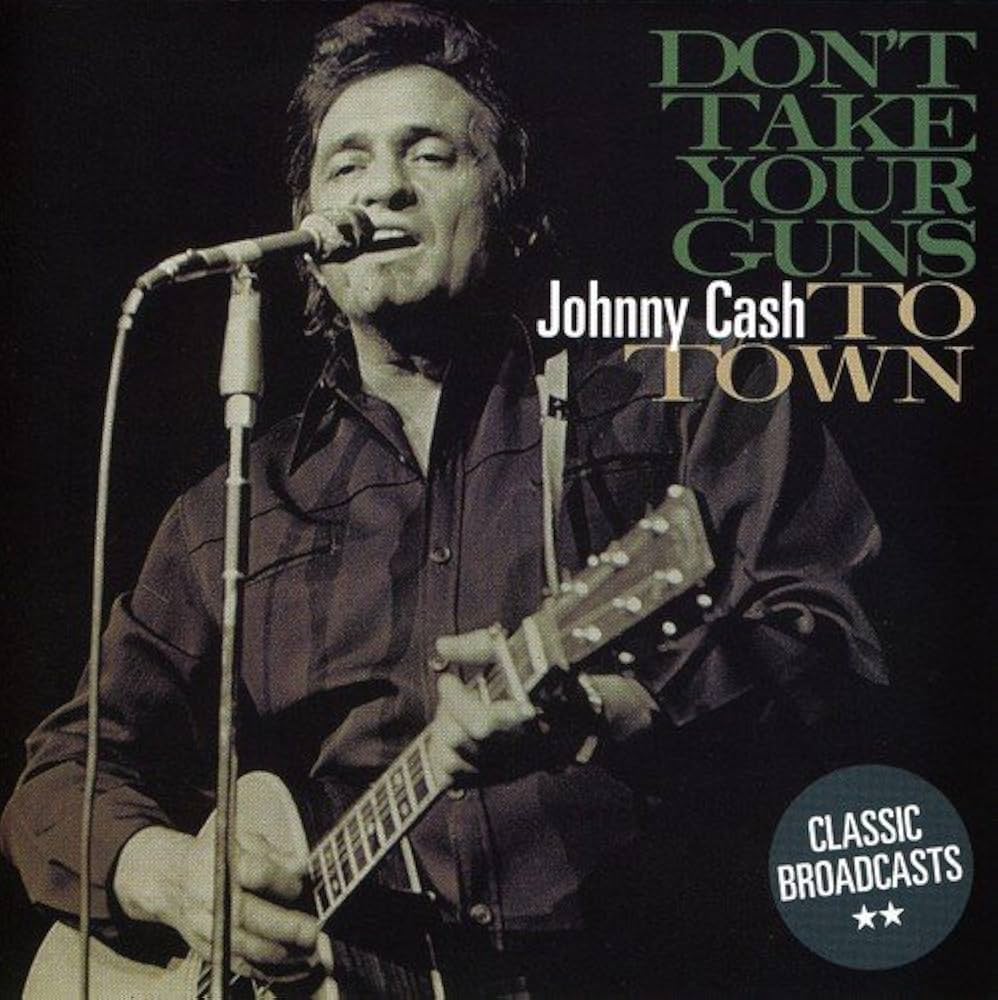A Haunting Tale of Youthful Hubris and Fatal Consequences

Upon its release in 1958, Johnny Cash‘s “Don’t Take Your Guns to Town” ascended to remarkable heights on the country music charts, securing its place as a poignant narrative within the illustrious album, “The Fabulous Johnny Cash.” This song marked a significant milestone in Cash’s career, climbing to number one on the Billboard country chart and crossing over to reach the pop chart’s top 40—a testament to its universal appeal and powerful storytelling.
The core of “Don’t Take Your Guns to Town” lies in its timeless tale—a stark admonition against youthful impetuosity set against the backdrop of a Western mythos. The song unfolds with a mother’s earnest plea to her son, Billy Joe, urging him not to carry his gun into town. It’s a plea borne out of love and foresight, yet one that ultimately falls on deaf ears. Billy Joe, brimming with youthful confidence and a yearning for adventure, dismisses his mother’s cautionary words. This sets the stage for an unfolding tragedy that resonates deeply with the listener.
What makes this narrative even more compelling is Johnny Cash‘s evocative baritone, which lends an air of solemnity and inevitability to the story. His voice, at once both commanding and tender, guides us through Billy Joe’s journey from hopeful naiveté to inevitable downfall. The stripped-down musical arrangement—characterized by steady, almost mournful guitar strums—mirrors the inevitability of the tale itself. It’s a minimalist approach that allows the lyrics to shine brightly in their stark simplicity.
At its heart, “Don’t Take Your Guns to Town” is a masterclass in storytelling through song. Cash employs a narrative technique that captures the eternal clash between youthful bravado and parental wisdom—a theme as relevant today as it was in the late 1950s. The tragedy here is not just Billy Joe’s untimely death but also the age-old battle between experience and innocence. His demise is foreshadowed from the outset, yet when it arrives, it strikes with an unexpected force—a testament to Cash’s ability to weave suspense into the fabric of his lyrics.
Moreover, the song’s cultural resonance extends beyond its narrative. It reflects a broader societal conversation about violence and masculinity, set against the rugged individualism of American frontier life. In doing so, it invites listeners to ponder deeper questions about identity and consequence—a hallmark of Cash’s songwriting prowess.
Cash’s decision to employ a straightforward storytelling style is deliberate; it underscores his belief in music as a vehicle for moral lessons wrapped in accessible narratives. His ability to merge these elements seamlessly speaks volumes about his artistry. “Don’t Take Your Guns to Town” remains an enduring piece of American music history—not only for its chart success but for its ability to capture human vulnerability with poignant clarity.
In exploring this musical masterpiece, one cannot help but reflect on how Johnny Cash—with his distinct voice and empathetic storytelling—crafted songs that transcended mere entertainment. They served as mirrors reflecting our own choices and their potential consequences. As such, “Don’t Take Your Guns to Town” continues to echo across generations, reminding us of life’s fragile dance between wisdom and folly.